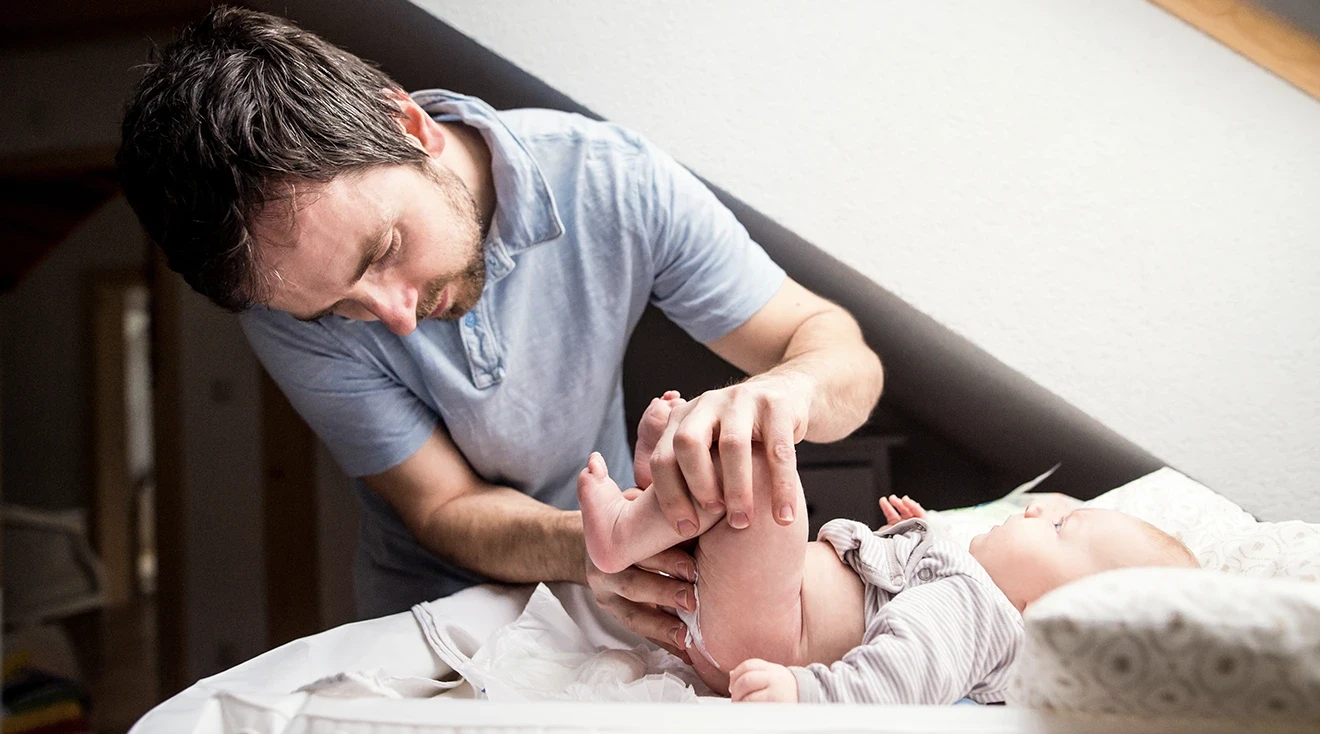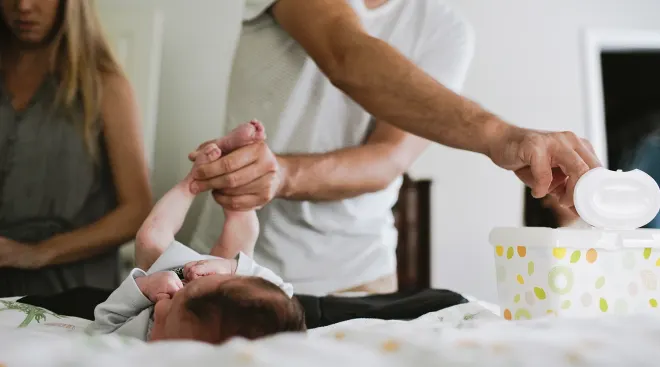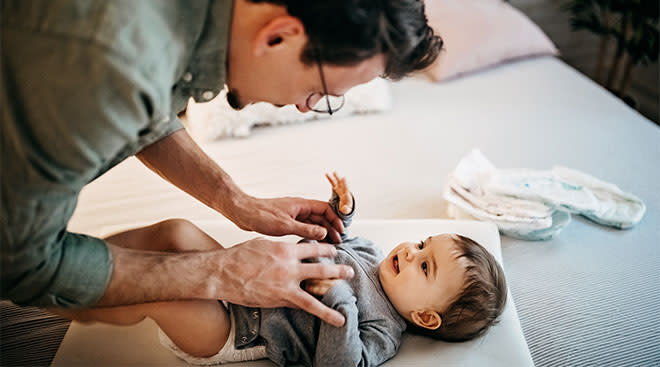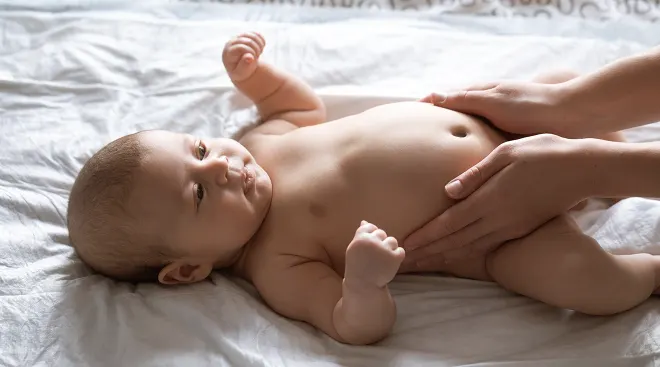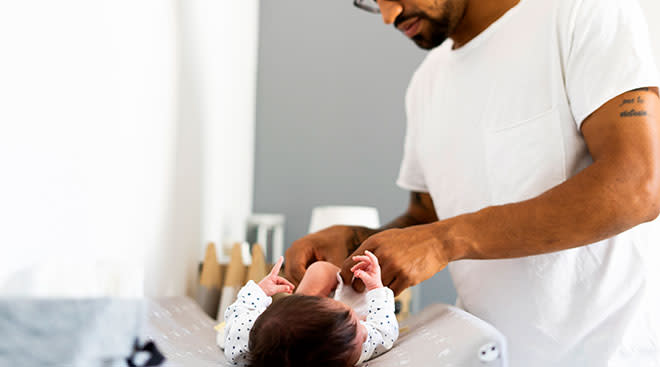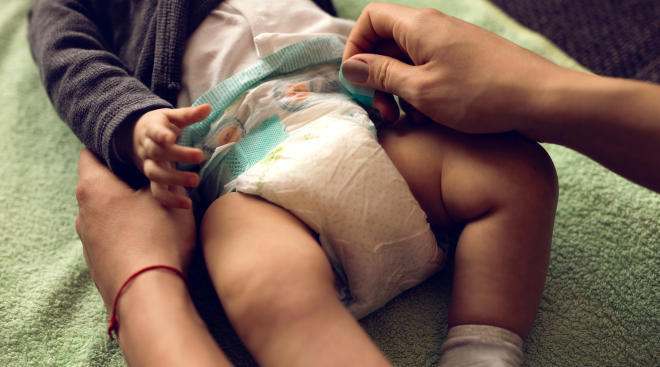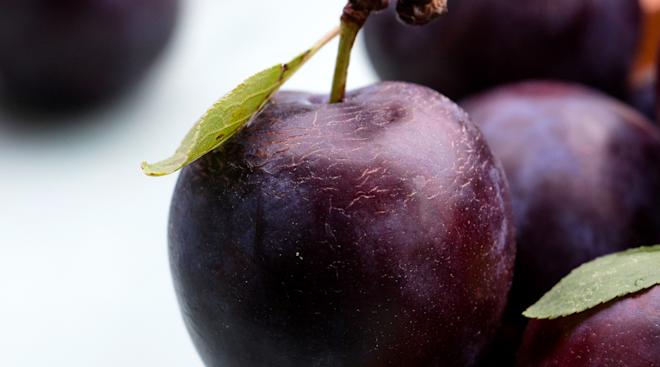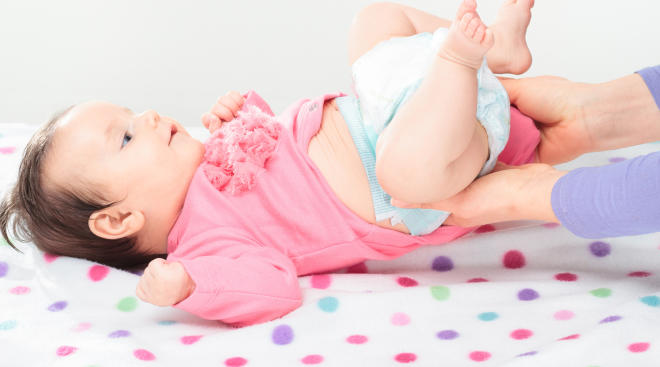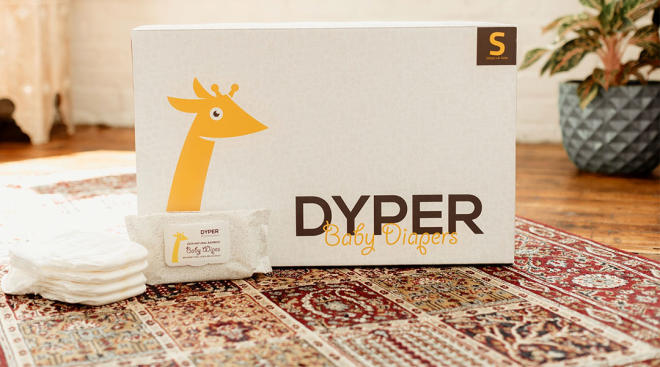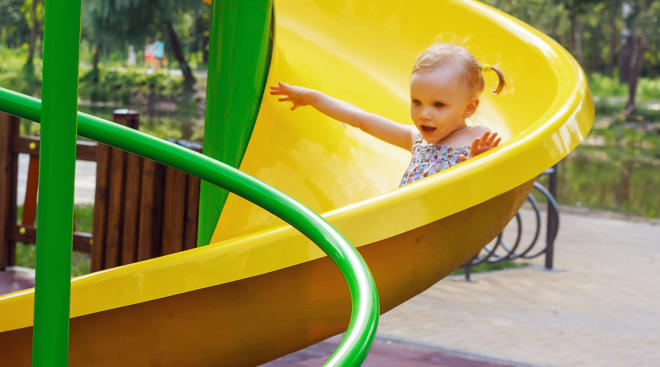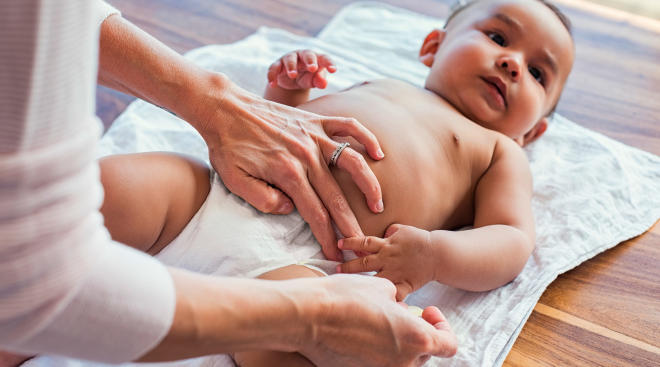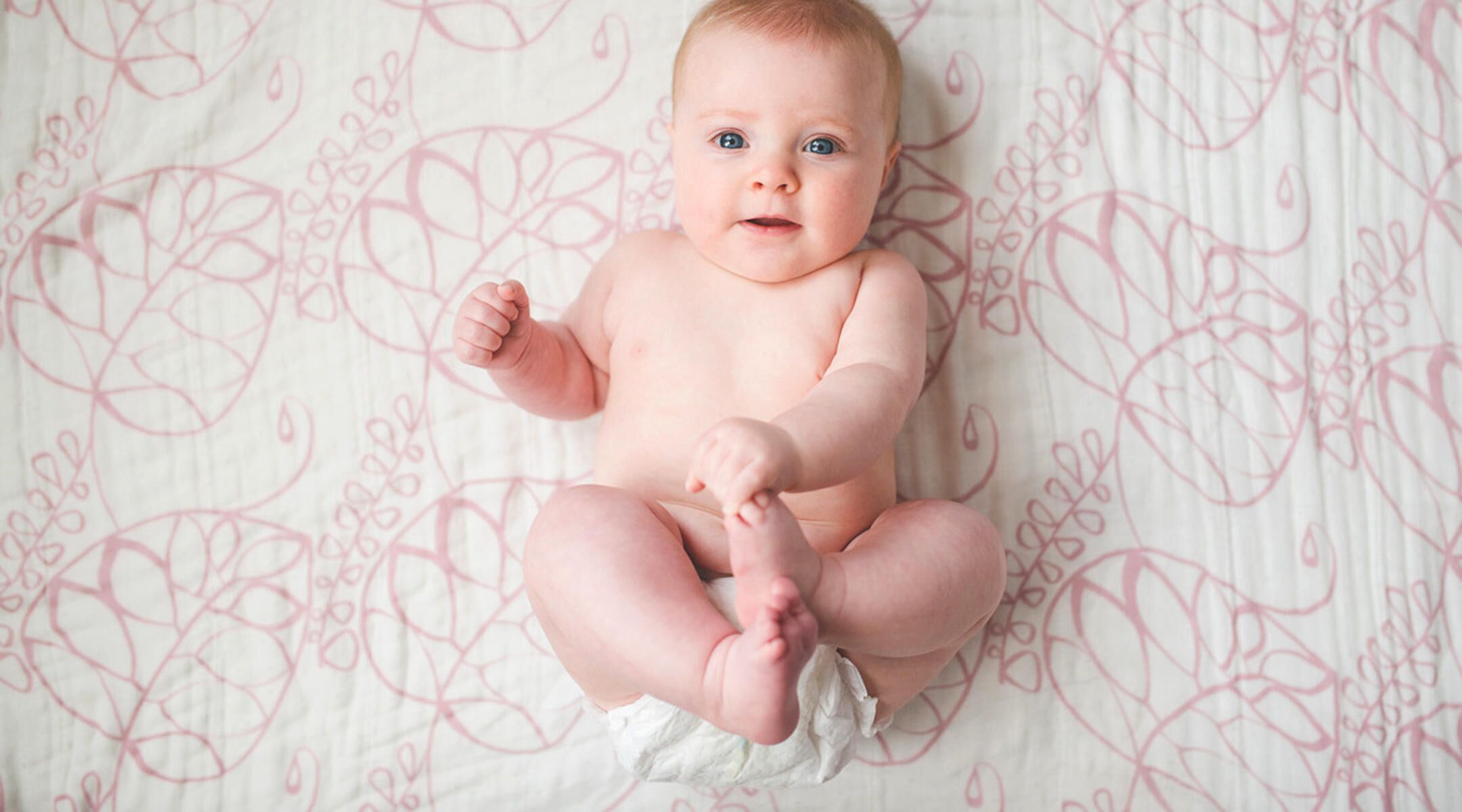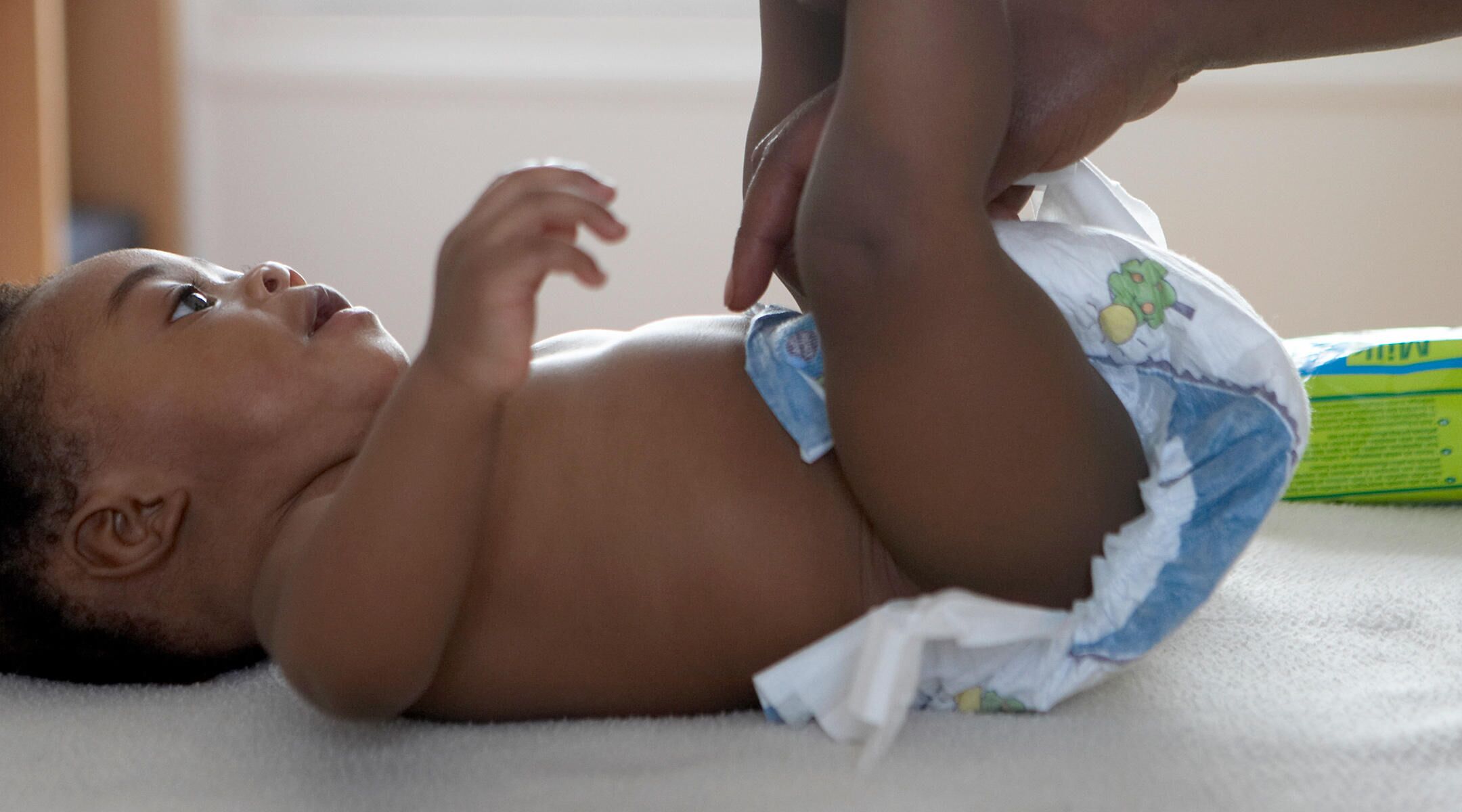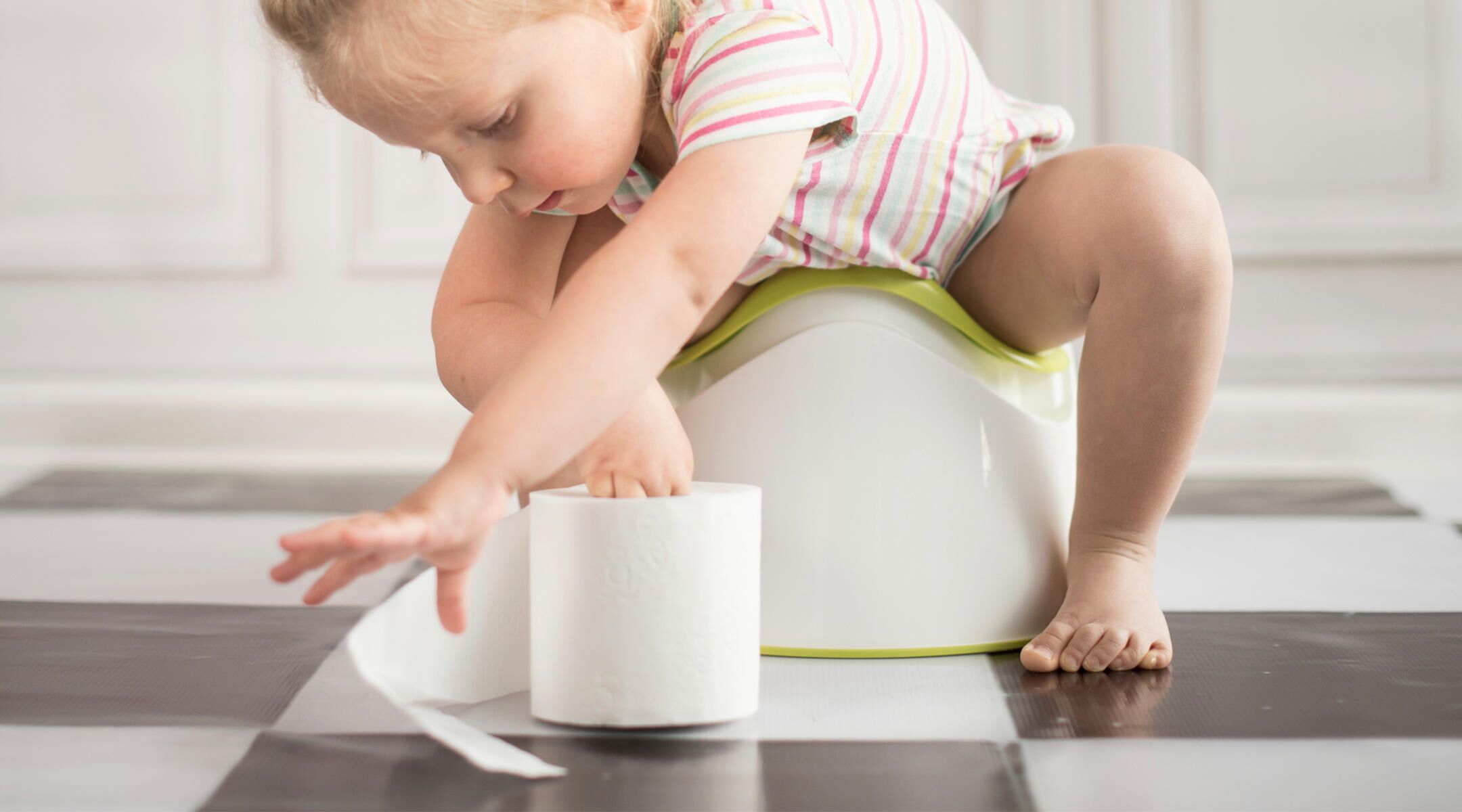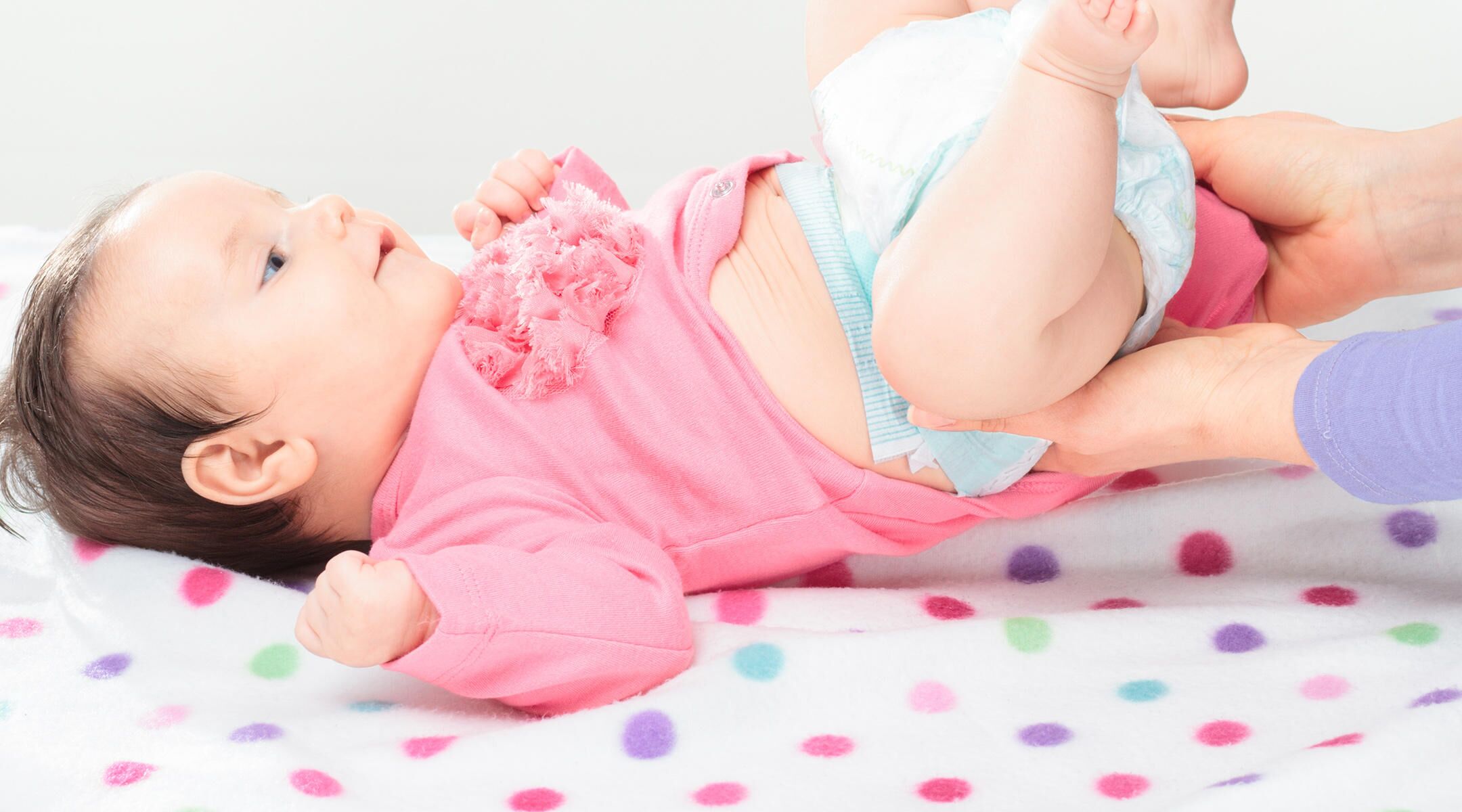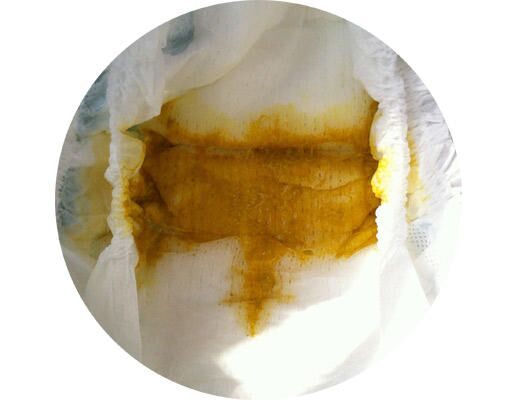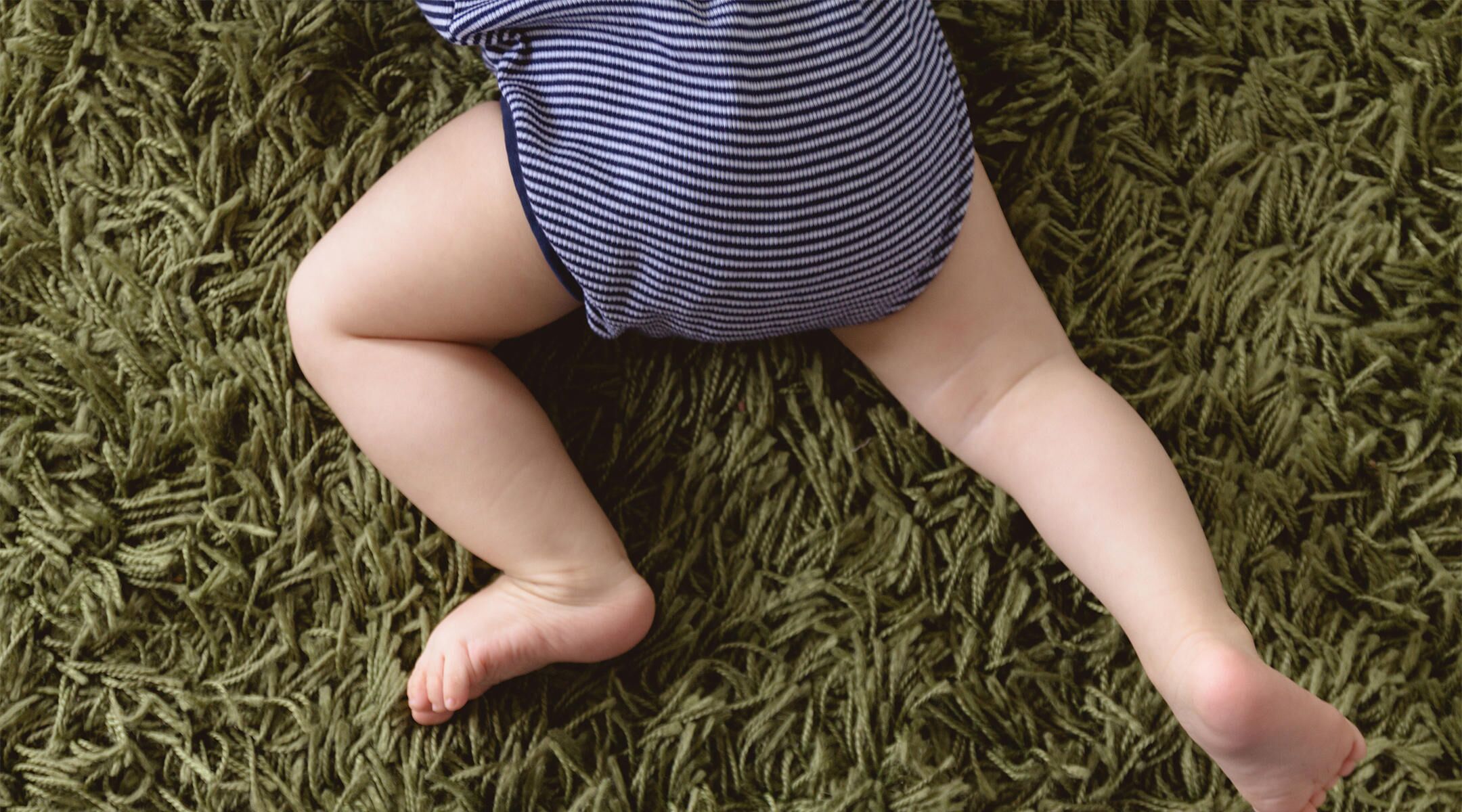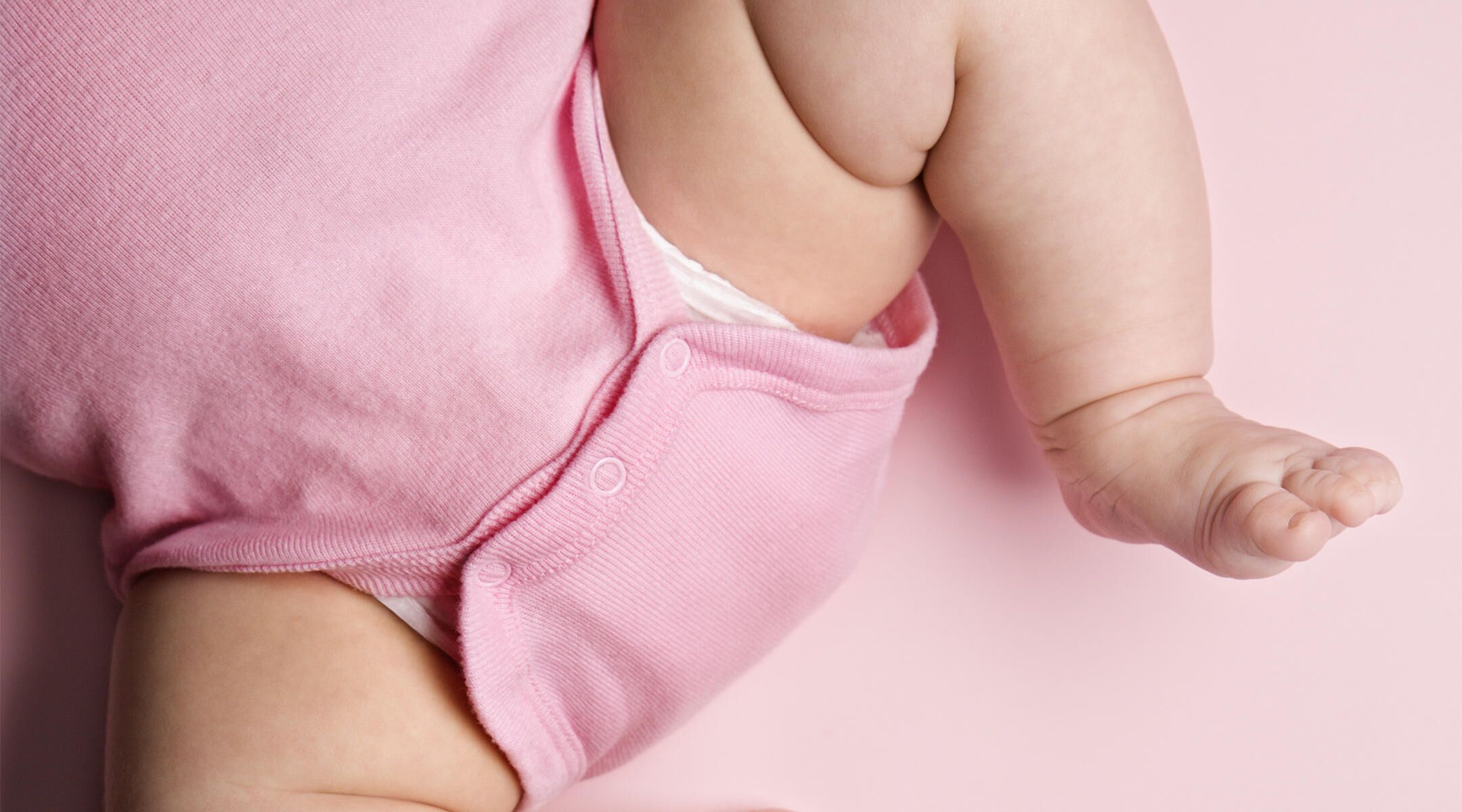What It Means When Baby’s Poop Is Green
Before becoming a parent, you can’t begin to fathom how much time and attention you’ll devote to thinking about your child’s poop. Of course, a few days into the journey, and you may begin to understand the fixation.
During baby’s first year of life, you’ll see poop of all amounts, textures, consistencies and colors. It’s a rainbow of possibilities, but the first time you spot green baby poop in their diaper, you might be a bit alarmed. Don’t worry, this is normal. So what causes this—and should you be concerned if baby’s poop is green? Keep reading for the full scoop on green poop, straight from the experts.
Baby poop evolves throughout the first few days, weeks and months of your little one’s life. In the early hours and days of parenthood, your newborn’s poop will be categorized as meconium, which is made up of everything they ingested in utero. It tends to be sticky, thick and dark. Soon after though, their poop will transition to become lighter and looser. While there are subtle differences between breastfed baby poop and formula-fed baby poop, both tend to be a yellowish brown. Of course, baby’s stool will continue to change over time.
“From brown to yellow to green, baby’s stools constantly change based on the nutrition they receive and the development of their gastrointestinal tract,” explains Jeremy Toffle, MD, a pediatrician at Children’s Physicians in Omaha, Nebraska. So what causes poop to be green? There are a number of different reasons why baby’s poop might take on this shade—fortunately, most of them are pretty harmless. Below, some of the different factors to consider if baby’s poop is green.
Breastfeeding
Does your breastfed baby have green poop? This is totally normal, says Toffle. “This may be due to an increase in foremilk production and intake.” Foremilk is the first milk that’s expressed when baby starts nursing, and it’s typically thinner in consistency with a slightly different nutrient makeup than hindmilk, which comes later. “To balance this out, make sure one breast is completely emptied before moving on to the next,” suggests Toffle. Pumping before latching baby onto your breast can also help, especially if you tend to produce more milk than baby eats in a given nursing session.
Formula feeding
Due to iron levels and other nutrients, green stools in formula-fed babies can be completely normal too, says Toffle. “A baby’s intestinal system can break these down in various ways,” he adds. Sometimes, this results in green baby poop.
Mucus
Green mucus baby poops aren’t uncommon either. “This could be due to an intolerance to certain proteins in the breast milk or formula,” says Toffle. If there’s excessive mucus in baby’s stool (which may or may not be streaked with blood), and your little one is perpetually fussy or not growing well, you’ll want to talk to your pediatrician. Dietary changes to reduce baby’s exposure to certain proteins may help, explains Toffle. If mucus is a sporadic occurrence in baby’s poop, and your kiddo doesn’t seem bothered, it’s probably fine.
Solids
Has your little one graduated to eating solids? Certain foods can impact the color of their poop. Leafy green veggies, like spinach, kale or swiss chard, can lead to greener poops, says Toffle. Additionally, if baby’s poop is dark green, blueberries might be to blame. According to Toffle, “blueberries can make stools a very dark color, if [baby] really enjoys eating a lot of them.”
Iron supplements
If baby has iron-deficiency anemia, and your pediatrician has prescribed iron supplements, it’s important to know that they can also cause dark green baby poop.
Diarrhea
Hoffman says that sometimes “things are moving through the intestines faster than normal (like with diarrhea),” and that can result in a distinctly colored poop. Additionally, soft green poop could be the result of a virus or teething, so watch your little one for other symptoms.
It’s worth noting that green poop isn’t exclusive to newborns and infants. “Bright green poop could mean a child has eaten something with green food coloring…. Toddlers sometimes eat things they shouldn’t (like crayons), so this can also cause green stool,” says Hormann.
Decoding the causes of your child’s colorful diapers isn’t particularly fun; rather, it can be downright panic-inducing for parents. The good news? When it comes to green baby poop, there usually isn’t much to worry about. “An infant’s stools can change for various reasons,” says Toffle. “Different shades of green or yellow are common, and the color of the stool itself isn’t typically concerning.”
When to Contact a Doctor
No need to run to the pediatrician if baby’s poop is green. Keep an eye on the next few diapers; things should return to their normal state. That said, if baby’s poop is consistently green with excessive mucus, it could be a sign of a food or ingredient intolerance, reiterates Toffle. Fussiness or slow growth are additional signs that this could be an issue. Reach out to your pediatrician for guidance; some proactive dietary changes may help.
In addition, there are a few other baby poop colors that should be flagged with your pediatrician. White stools could indicate a liver problem, and bloody stools may suggest a milk intolerance or an infection, adds Hormann. “Bloody stools can look bright red like blood, meaning the bleeding is somewhere in the intestines, or dark black like tar, which suggests the bleeding is somewhere in the upper GI tract (esophagus, stomach).”
Baby’s diaper will keep you guessing throughout the next several months. Green poop happens. There’s no cause to stress. Monitor baby’s diaper, and try not to obsess too much.
Please note: The Bump and the materials and information it contains are not intended to, and do not constitute, medical or other health advice or diagnosis and should not be used as such. You should always consult with a qualified physician or health professional about your specific circumstances.
Plus, more from The Bump:
Mark D. Hormann, MD, FAAP, is the vice dean for educational programs and professor of pediatrics at UTHealth. He earned his medical degree from the University of Texas Health Science Center in Houston.
Jeremy Toffle, MD, is a pediatrician at Children's Physicians in Omaha, Nebraska. He received his medical degree from the West Virginia School of Medicine.
Learn how we ensure the accuracy of our content through our editorial and medical review process.
Navigate forward to interact with the calendar and select a date. Press the question mark key to get the keyboard shortcuts for changing dates.
































